The 5 laws include: Law on Science, Technology and Innovation; Law on Digital Technology Industry; Law amending and supplementing a number of articles of the Law on Product and Goods Quality; Law amending and supplementing a number of articles of the Law on Technical Standards and Regulations; Law amending and supplementing a number of articles of the Law on Atomic Energy.
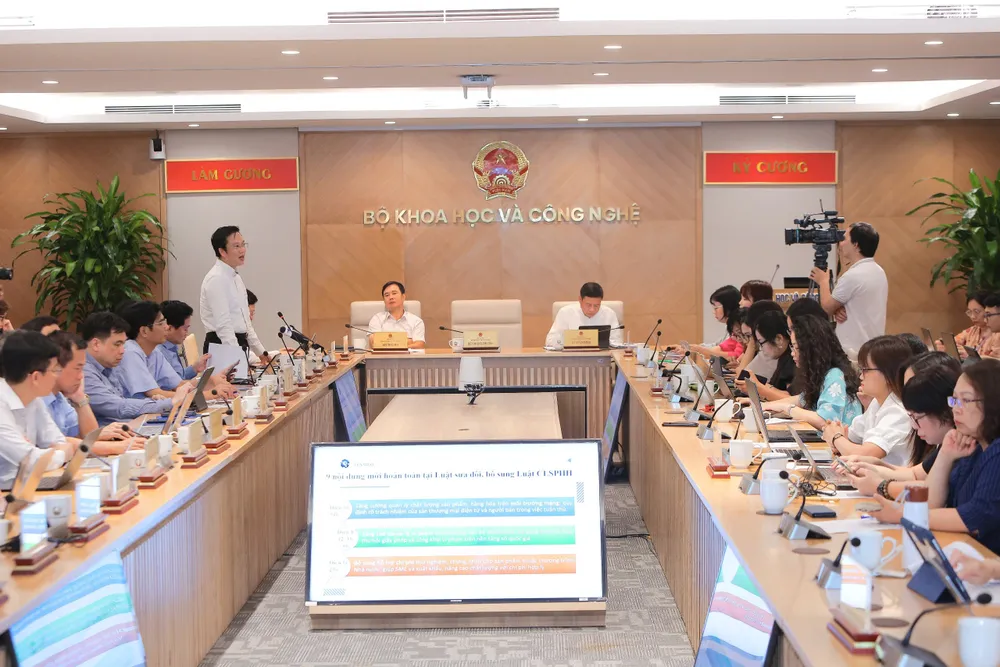
At the press conference, Deputy Minister of Science and Technology Le Xuan Dinh said that the National Assembly's approval of five laws this time is a strong step to concretize the major orientations of Resolution 57-NQ/TW on breakthroughs in science and technology development, innovation and national digital transformation of the Politburo and other resolutions; especially the completion of institutions, removing bottlenecks, promoting new development drivers such as science and technology, innovation and digital transformation.
“The laws not only create a legal foundation for effectively implementing national policies and strategies on science and technology, innovation and digital transformation, but also play an important role in ensuring consistency and synchronization in state management, especially when the two-level local government system is entering the practical operation stage,” Deputy Minister Le Xuan Dinh emphasized.
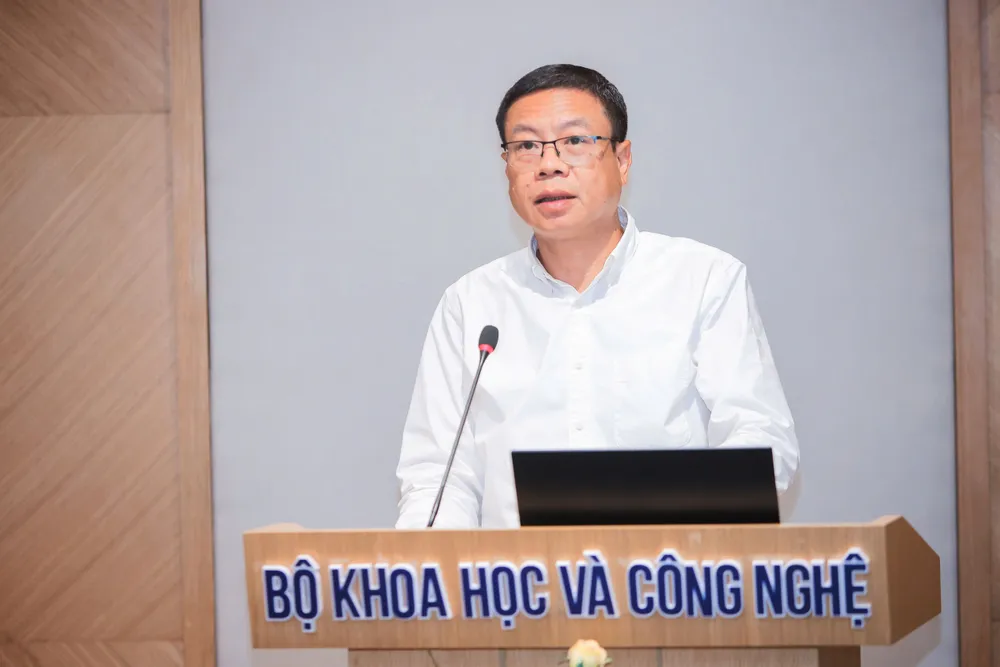
According to Deputy Minister Le Xuan Dinh, although they were all drafted 1-2 years ago, the content of these laws has been almost completely rebuilt, with the spirit of deeply absorbing the major policies and ideas of Resolution 57-NQ/TW of the Politburo issued on December 22, 2024. The Ministry of Science and Technology hopes that with the participation of the entire political system, the companionship of the business community, scientists and the active participation of press agencies in strongly disseminating the core contents of the 5 laws, it will be a practical contribution, bringing legal policies into life, contributing to creating substantive changes, building an advanced science and technology, comprehensive innovation and effective digital transformation.
* The Law on Science, Technology and Innovation (effective from October 1, 2025) represents a fundamental change in development thinking, for the first time including innovation in law and placing it on par with science and technology. Innovation is expected to contribute 3% to GDP growth, while science and technology only contributes 1%.
* The Law amending and supplementing a number of articles of the Law on Product and Goods Quality (effective from January 1, 2026) demonstrates a new management mindset, shifting from an administrative management model to risk-based quality management; from pre-inspection to post-inspection based on data and digital technology; from an incentive mechanism to binding responsibility, transparency and strict sanctions.
* The Law amending and supplementing a number of articles of the Law on Standards and Technical Regulations (effective from January 1, 2026) marks a comprehensive innovation in the thinking and management methods of the field of standards, measurement and quality. For the first time, the national standards strategy is legalized as a long-term orientation tool; at the same time, a national database on standards, measurement and quality is established. The Law also stipulates the principle of "one product - one standard" nationwide, ending overlapping management and increasing enforcement efficiency. In particular, the mechanism for unilateral recognition of international assessment results will help high-tech enterprises quickly access the market.
* The Law on Digital Technology Industry (effective from January 1, 2026) is a major turning point in establishing a legal framework for new fields such as the semiconductor industry, artificial intelligence and digital assets. The law stipulates a strategy for developing specialized chips and linking global supply chains. For AI, the law sets out the principle of "taking people as the center", requiring AI digital technology products to have identification marks, and the State provides the highest preferential policies to promote research, development, deployment and use of artificial intelligence. This is also the first time that digital assets, including virtual assets and encrypted assets, have guaranteed ownership, transactions and security...
* The Law amends and supplements a number of articles of the Law on Atomic Energy (effective from January 1, 2026), creating a comprehensive legal framework, consistent with the guidance of the International Atomic Energy Agency (IAEA). The Law identifies nuclear power as a national strategy, contributing to ensuring energy security, reducing carbon emissions; nuclear safety and security management is unified by a competent state agency, according to international standards.
Source: https://www.sggp.org.vn/hanh-lang-phap-ly-quan-trong-de-thuc-day-phat-trien-kh-cn-va-doi-moi-sang-tao-post802837.html



![[Photo] General Secretary To Lam attends the 80th Anniversary of the Cultural Sector's Traditional Day](https://vphoto.vietnam.vn/thumb/1200x675/vietnam/resource/IMAGE/2025/8/23/7a88e6b58502490aa153adf8f0eec2b2)



![[Photo] Prime Minister Pham Minh Chinh chairs the meeting of the Government Party Committee Standing Committee](https://vphoto.vietnam.vn/thumb/1200x675/vietnam/resource/IMAGE/2025/8/23/8e94aa3d26424d1ab1528c3e4bbacc45)



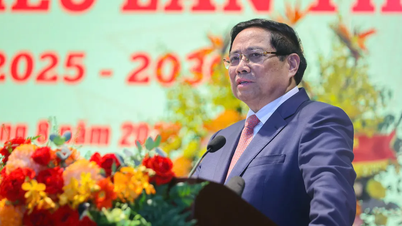
























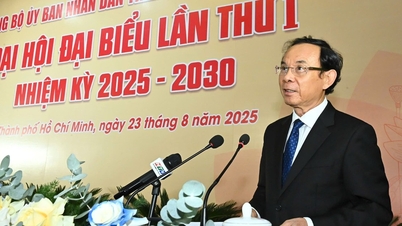












































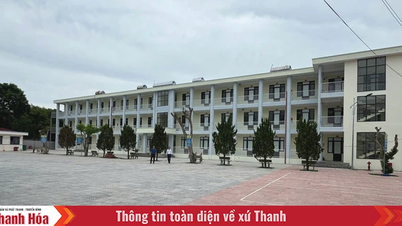


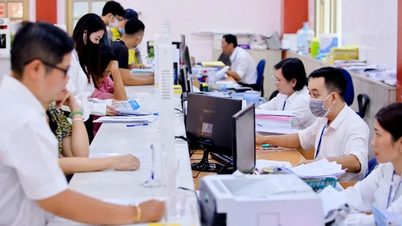


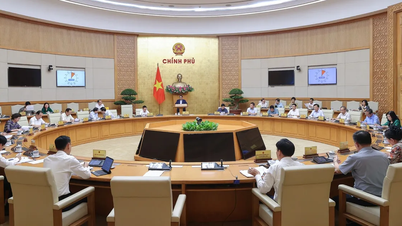

















Comment (0)